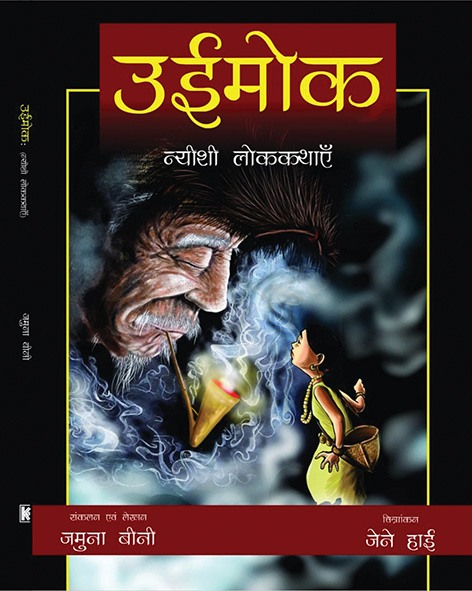PASIGHAT/ITANAGAR, Sep 21: Five to six stories from the book Uiimok are being shortlisted by the NCERT and will be included as part of the Hindi textbooks of upper primary classes (5-8) in government schools.
Folktales of the Nyishi community of Arunachal will soon feature in the curriculum of the government schools in Rajasthan.
Chief Minister Pema Khandu shared the development through a tweet with pictures of the author, Jamuna Bini, and the cover of the book, Uiimok, a collection of 21 Nyishi folktales in Hindi.
“About five to six folktales from the book are being shortlisted by the NCERT and will be included as part of the Hindi textbooks of upper primary classes in Rajasthan government schools,” Bini said.
Khandu tweeted on September 13: “Happy to know that folktales from Nyishi tribe of Arunachal from the book ‘Uiimok’ will be introduced in Rajasthan’s govt schools under #EkBharatShreshthaBharat. Thank you Dr Jamuna Bini, author of this Hindi book for sharing us this wonderful news.”
Bini, an assistant professor of Hindi at Rajiv Gandhi University, said it is “a great honour and an encouragement to share the stories of our land with the world.”
A senior NCERT official contacted Bini early this year, seeking her consent to include some of her stories in the upper primary classes in Rajasthan. Uiimok was published and released by the Indira Gandhi Rashtriya Manav Sangrahalaya during the Tribal Litfest held in Bhopal last November.
“It is also a befitting tribute to my ancestors and all Nyishi elders who have passed on these folktales generation after generation. I just documented these tales. I would also like to thank the illustrator, Jene Hai, of my book. All 21 tales carry an illustration for the right visual effect,” Bini, who belongs to the Nyishi community, said.
Uiimok, according to Bini, means ‘the land of the dead’. “It is the first story in the book. We Nyishis believe in life after death. It is a touching story of a girl who chases the soul of her dead father. The book was well received in the Hindi belt where talks and symposium were also held on the book.
“One thing I have realized is that, despite being a multicultural and multilingual country, our soul is one,” she said.
Referring to two instances about the oneness, Bini said, “Nyishis don’t hunt tigers as we consider them our brothers. A tribe in Sikkim shares the same belief. There is a tale about why crows are black in Nyishi. There is a similar tale in the Bhojpuri belt. This all proves how similar we are despite our diversities.”
Bini’s literary offerings in Hindi and mother tongue Nyishi have been translated into many Indian languages, including Santhali, Assamese, Malayalam, Punjabi, Rajasthani, and even Turkish. Her poems are included in the MA curriculum of the Allahabad University.
The recent honour, Bini said, has only made her “more determined” to write more about her land.




